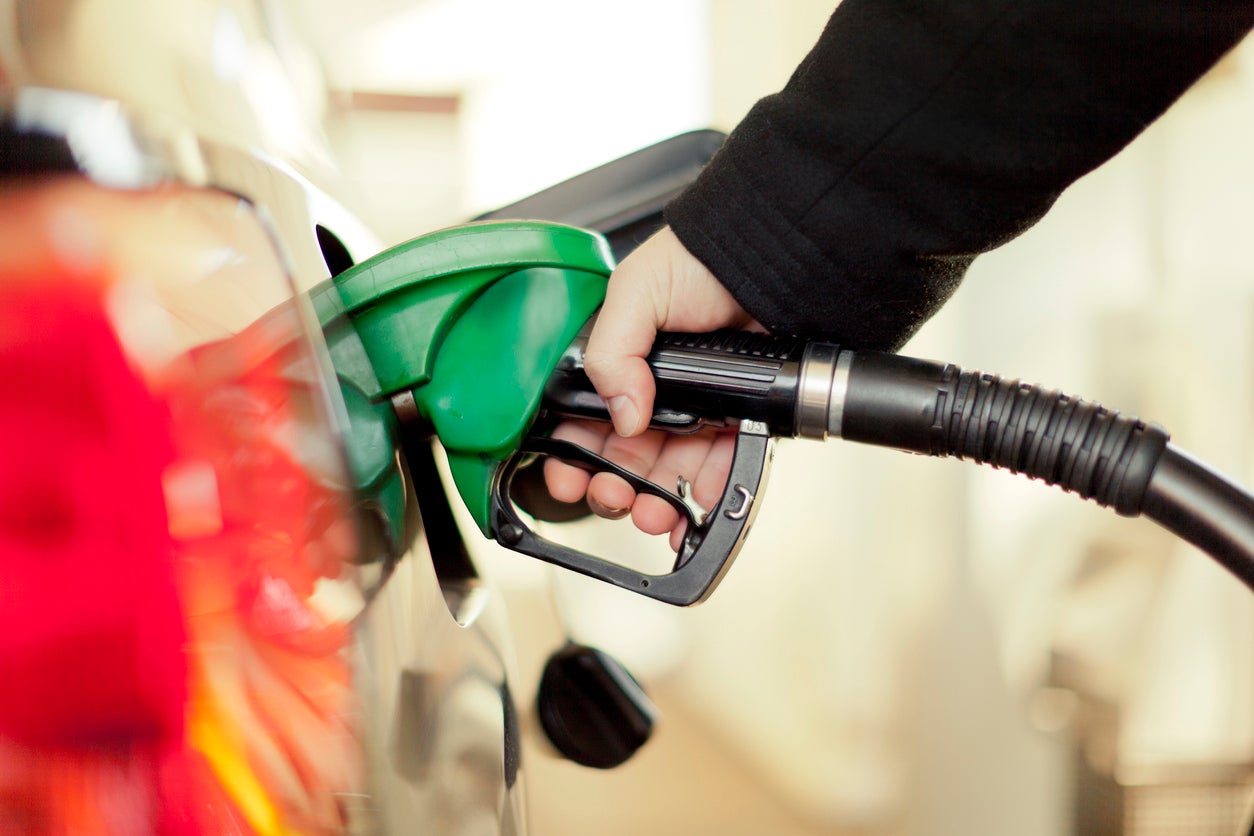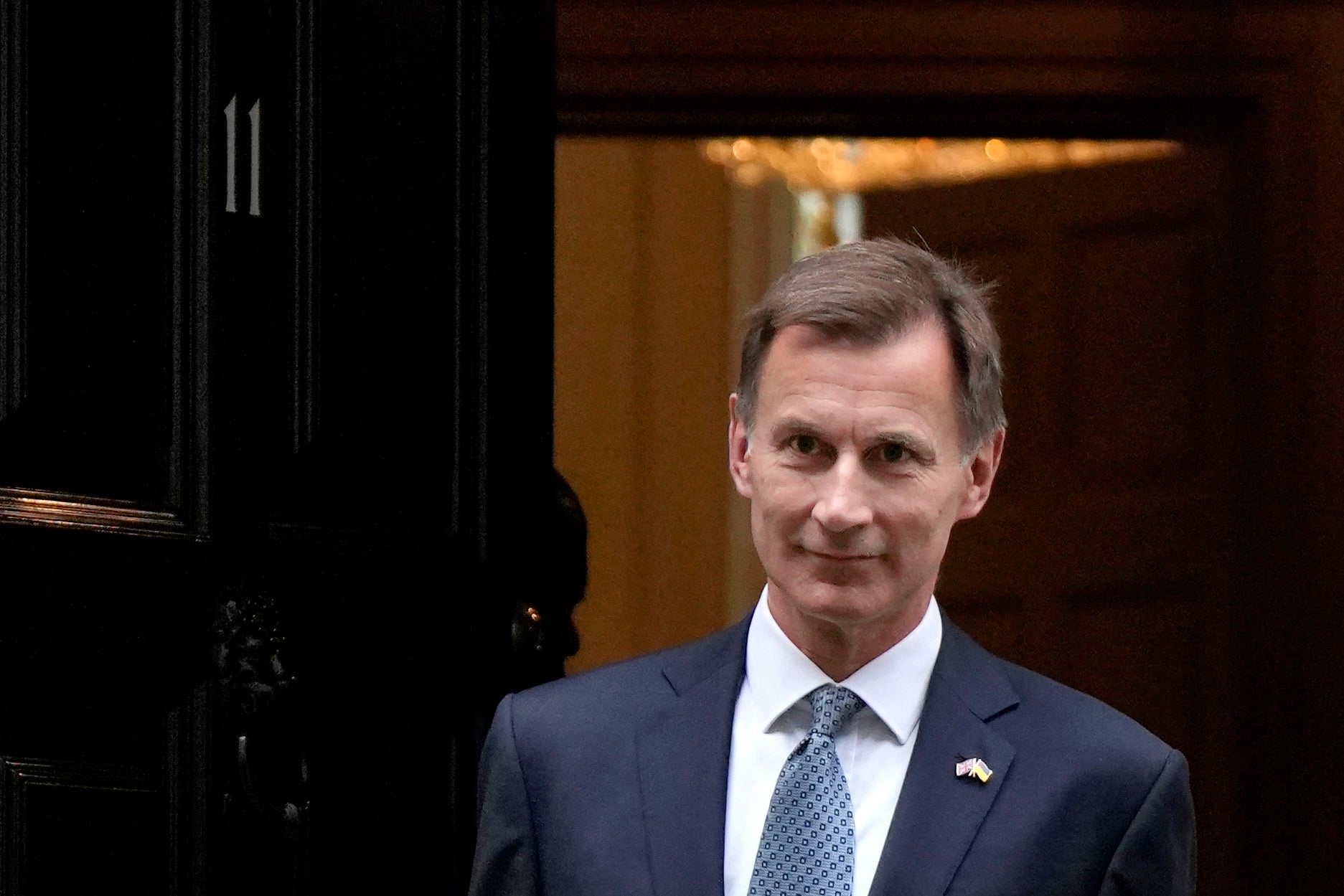Jeremy Hunt insists ‘no decision’ made on raising fuel duty by 23%
OBR documents have assumed the government will end the £65 billion fuel duty freeze

The government has made "no decision" on whether to increase the rate of fuel duty on petrol, Jeremy Hunt has said.
Speaking on Friday morning the chancellor said the government would decide whether to increase the tax in its spring budget next year.
Mr Hunt had made no mention of a rise in his autumn statement on Thursday – but Office for Budget Responsibility documents released after the announcement said a 23 per cent rise was on the cards from March.
Such an increase would add 12p to a litre of fuel, the rise first in a decade of the rate of duty being frozen.
Asked about the measure on Friday morning Mr Hunt told BBC News: "Well, let me clear on that. That is not government policy. We will make a decision on that at the next budget in the spring.
"That was just an assumption that the OBR made. They're an independent organisation, they make assumptions, and we have made no decision on that at all."
Pressed on the matter, he said: "What I'm saying is we have not made a decision and the time we make that decision is at the spring budget."
Freezing fuel duty is vastly expensive for the government, especially when inflation is high.

The Office for Budget Responsibility (OBR) has estimated that the cumulative cost of freezing the tax between 2010/11 and 2021/22, relative to increasing them in line with inflation, is around £65 billion.
The OBR documents Mr Hunt was asked about refer to "the planned 23 per cent increase in the fuel duty rate in late-March 2023, which adds £5.7 billion to receipts next year".
"This would be a record cash increase, and the first time any government has raised fuel duty rates in cash terms since 1 January 2011. It is expected to raise the price of petrol and diesel by around 12 pence a litre," it adds.
The estimated £5.7 billion annual revenue from unfreezing fuel duty next year would on its own pay for the government’s entire NHS cash injection in 2023-24, with millions left over. It is roughly twice the planned increase in schools funding.
According to one analysis from 2020 the freeze has led to 5 per recent more traffic on the roads and an extra five million tonnes of CO2, by incentivising driving over greener forms of travel.
The government has justified the policy on the basis that it puts more money in people’s pockets and reduces their costs, however. In 2022 Rishi Sunak went further than freezing the tax and cut its rate by 5p.
Mr Hunt's autumn statement included other significant tax rises, such as freezing tax thresholds – as well as cuts to departmental budgets. A plan to cap social care costs was postponed by two years.
Speaking on Friday morning the chancellor warned that "over the next two years it is going to be challenging".
But Mr Hunt said people wanted a "Government that is taking difficult decisions, has a plan that will bring down inflation, stop those big rises in the cost of energy bills and the weekly shop, and at the same time is taking measures to get through this difficult period".
The economic outlook for the UK worsened significantly in the autumn after Liz Truss unveiled tens of billions of pounds in unfunded tax cuts, spooking financial markets.
Also speaking on Friday Labour's shadow chancellor Rachel Reeves said did not exactly what her party would do if it came to power in 2024.
"We know because of the mess that the Conservatives have made we won't be able to do everything we want when we want," she said.
"We don't know the situation that we are going to inherit and there's no reason that it has to be as bad as this forecast yesterday."
But Ms Reeves said the party would target the "better off to pay more to ease that pressure on ordinary people", taxing those "with the broadest shoulders" more.






Join our commenting forum
Join thought-provoking conversations, follow other Independent readers and see their replies
Comments